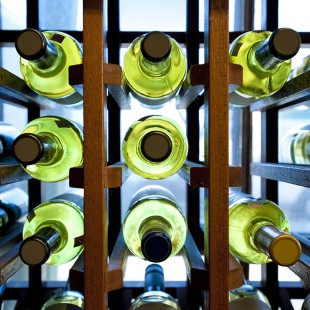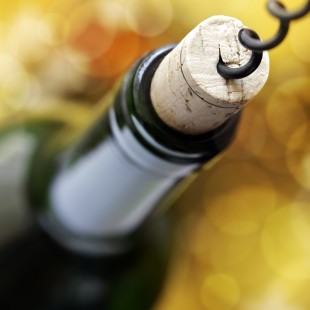A hint of apple, floral notes of lilac, or a spicy bouquet reminiscent of cinnamon – wine connoisseurs use figurative descriptions to characterise the flavours and aromas found in the bouquet of a good wine. The grape variety, soil conditions and time of harvest all have a significant bearing on the wine's flavour, as does the extent and nature of the ageing processes. Delicate microbiological processes are responsible for the development of the flavour, many of which continue even after the filling stage. Wine connoisseurs refer to this as bottle ageing, and it is this process that often gives an outstanding taste to many fine wines.

During bottle ageing, wine should be stored in a place where it is protected against ambient influences.
Bottle ageing
During the bottle ageing stage several substances in the wine, notably acids, tannins and colorants, interact with one another, which breaks down any intensive woody notes and enables fruity flavours to further develop. Depending on the type of wine, its full flavour can take several years to develop. During this time, ambient influences such as airborne odours can distort the flavour of the wine, especially if it is stored on an open shelf in the kitchen. It is also important to realise that not every cellar makes an ideal wine cellar.

Natural corks retain their quality at humidity levels of over 50%.
The secret to successful bottle ageing
- Wine best develops its flavour in bottles that are stored at a constantly cool temperature of between 10°C and 12°C. Heat impairs the bottle ageing process and destroys fine flavour notes.
- Oxygen, which usually penetrates bottles through dried-out corks, also impairs the ageing process.
- A humidity level of over 50% keeps corks intact – and thus the bottles remain fully sealed, so that the wine is protected.
Our wine ageing cabinets create constant storage conditions, and therefore offer the optimum environment for wine that is being aged in the bottle.

